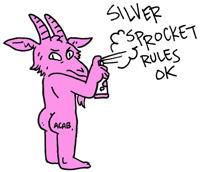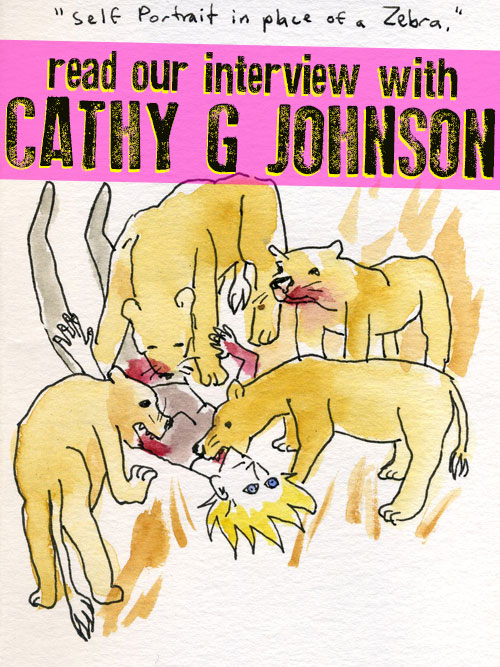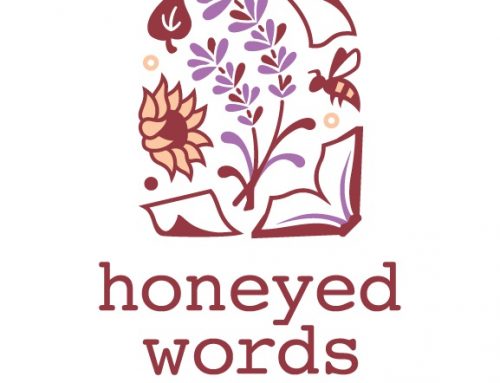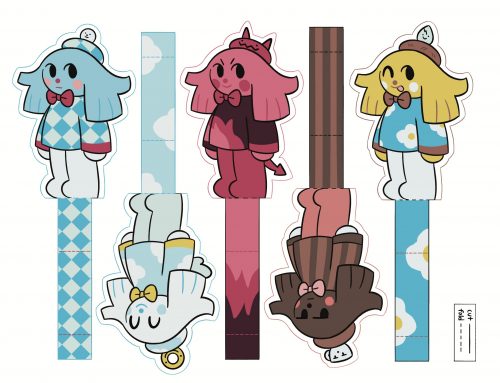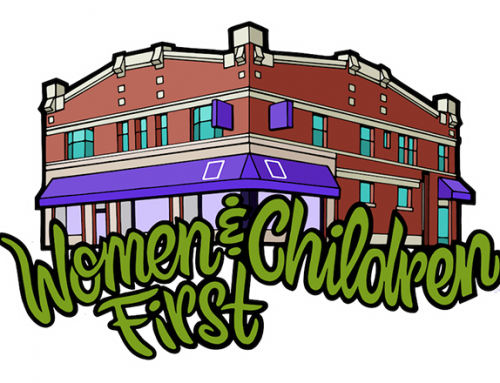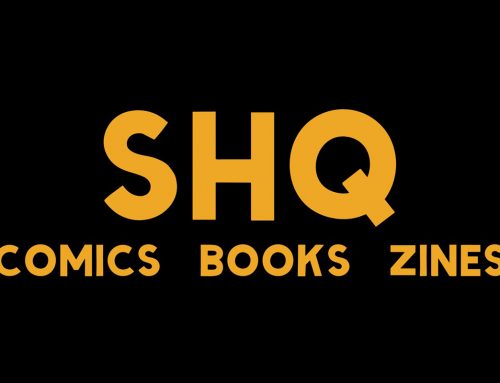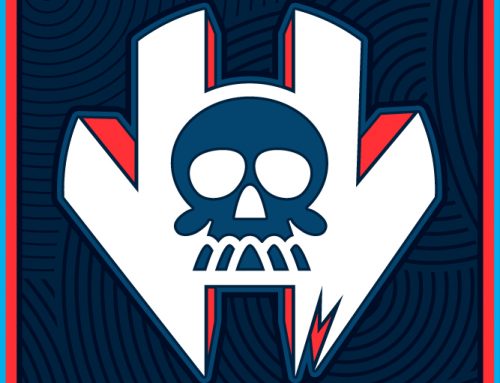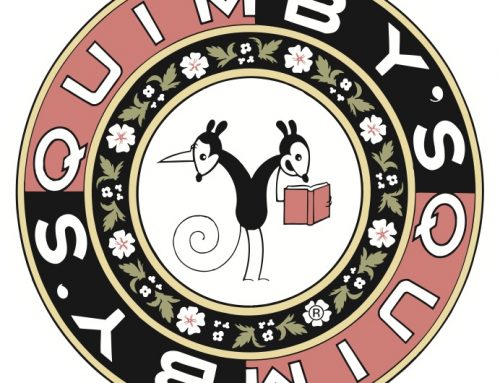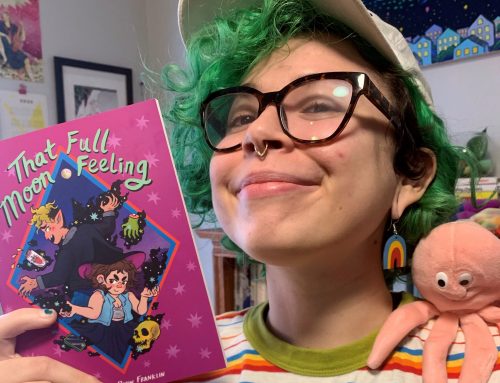No offense to the other As You Were contributors, but Cathy’s comic is the one that, more than any other in #3, hit me right in the emotional fruit stand. Reading more and more of her comics I just kept thinking: “oh no, I’m about to have feelings”—and that is great and should be feared and respected. Way to go emperor deep comics. FYI, I’m not the only one who feels this way. Case in point: Cathy has been nominated for the Ignatz Award in Promising New Talent, which will be voted on and presented in September at SPX 2014.
Read on for Cathy’s thoughtful interview and wonderful artwork.
Interview by Ion for Silver Sprocket
How did you get involved in the big milkshake of As You Were?
I met Mitch Clem and Nation of Amanda at SPX 2013. I was tabling with Liz Suburbia. I came up to Mitch at the afterparty to tell him that my old boss had gone to that Mountain Goats show he wrote about missing in the first As You Were (I’m originally from Minnesota, too). Punk world is small. The next day at the con, Amanda and Mitch bought my self-published graphic novel, Jeremiah, and a few months later, Mitch invited me to be in the book. I was hesitant at first, but after some thinking and texting with Liz, I decided to go for it. I’m also pals with Emilja Frances and Mike Funk. I wanted to be in a book with those guys.
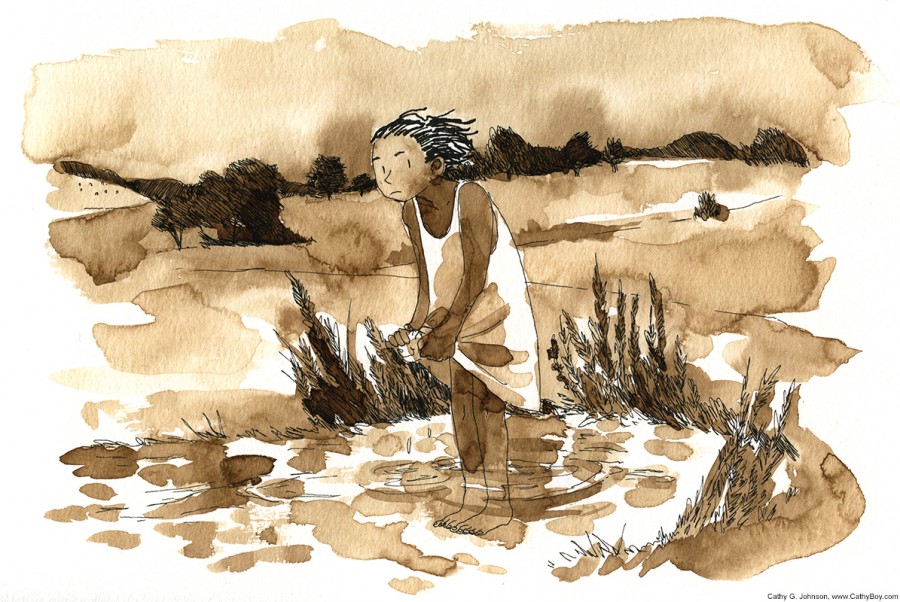
What do you do in your non-artsy time?
My day job is being an after-school educator. I’m a faculty member in a high school drama department, I teach the odd class at art museums and libraries, and I work for the Girl Scouts [as] a Troop Leader. I like working with kids a lot because they aren’t [as] insidious as adults and, to be cliche, they are our fucking future. I do a lot of teaching girls to stick up for themselves and each other, and helping kids broaden their imaginations. Otherwise, I guess I drink beer, watch the Dog Whisperer, read comics, and go to shows. I travel a lot for comic conventions too. But truthfully I’m mostly either drawing or teaching kids.
Where do you drum up the ideas for your comics? Do some of them come from some howling ether and you yourself still don’t know?
My newest graphic novel, which hasn’t been drawn or even announced yet, is 100% inspired by my Girl Scouts. I feel a strong incentive to make cool comics for girls that reflect their lives and problems and triumphs. I also garner a lot of inspiration from my cartoonist friends in Providence, namely O Horvath, Mimi Chrzanowski, Dailen Williams, and Katrina Silander Clark. We make comics and show each other and make more comics inspired by each other. I have an amazing friend-family here that’s incredibly supportive and creative.
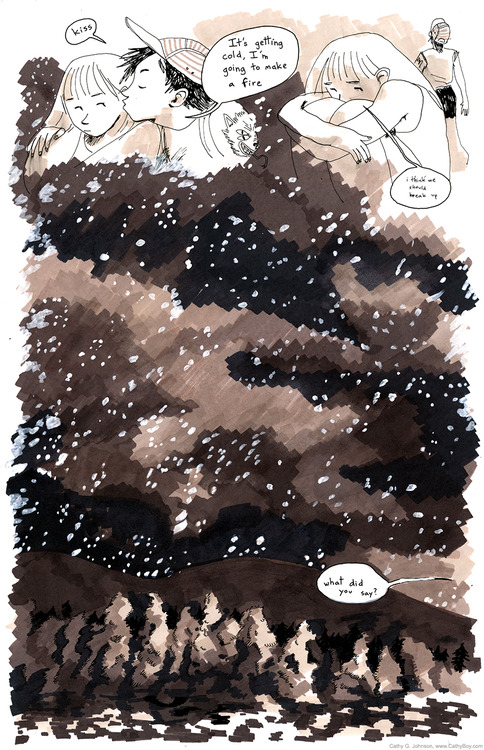
When trying to communicate something indescribable, when do you employ metaphor? When do you keep it ambiguous for the audience to fill in?
I’m not conscious [of] when I write metaphors. When I’m emotionally invested in a story, the imagery and events go along with the feeling, and the intention comes through. I think if I were to plan too much my work would be more heavy-handed than it can be already. Things just kind of… become metaphors. I also write a ton and employ editing to get my work down to the essential events, which was my main writing tactic for A Happy Death.
I think I’ve given up on the ambiguous. My work often talks about queerness and gender, and even when I think I’m being extremely literal, the audience reads into it whatever they want. I’ve had people at cons present me with completely wrong interpretations of my work. As a creator, sometimes you just need to stare straight into someone’s face and tell them exactly what’s going on. That’s what my comic in As You Were #3 is like. I wanted manarchists to know I was talking to them. I still know there are plenty of punkbros who have read it and don’t think it was literally them. Like, it’s literally you. It’s you.
Does the story determine the materials/approach, or vice versa? Or a combination of both?
A combination. It’s generally what I feel like at the time. I’ve been doing work for anthologies, so those are determined by what the editor is going to print with (color, xerox, riso). In the case of As You Were, Mitch asked me to do it in ink wash. I think that was a factor to invite me, that I do a lot of watercolors, and he wanted more in the book. Pencil comics take me a very very very long time, and even though I like it, I’ve been taking a break from it. I can get too drawn in and obsessive about details if I give myself the opportunity.
Her name was Prudence is a stellar comic. What was its genesis? Is it autobiographical?
Thank you. It wasn’t meant to be autobiographical in the slightest, actually. That was the exploration. It was inspired by an essay by Kate Zambreno titled “All the Sad Young Pretty Girls,” which in turn was a piece about a short story by Marie Calloway titled “Adrien Brody,” which is now printed in Calloway’s book “what purpose did i serve in your life.” The Zambreno essay was about young women falling into the social expectations of attractiveness and having casual sex, perhaps even “degrading” sex, with men. She wrote about how Calloway was writing in a feminist literature tradition, like Anaïs Nin, referenced in the quote I have in the back of the print copy of Prudence (“Disgust for Anaïs Nin is a disgust for the girls with their Livejournals”). I was going through my own sexuality / gender crisis at the time, and the idea of casually sleeping with patriarchal figures was horrifying to me. So in order to confront these essentially slut-shaming judgments, I invented a character who had casual sex with men and wrote about her. I did this all the 2012, so the tactic “worked,” if you will, because I feel extremely differently on the subject.
That’s its genesis, but Prudence ended up being more about feeling constantly disappointed by the people around you, and kinda just taking it. It’s funny you mentioned it, because as I was writing A Happy Death, I realized I was essentially making my personal autobiographical version of Prudence. We all go through that, feeling very disappointed by [our situations], and then realizing there are ways out.
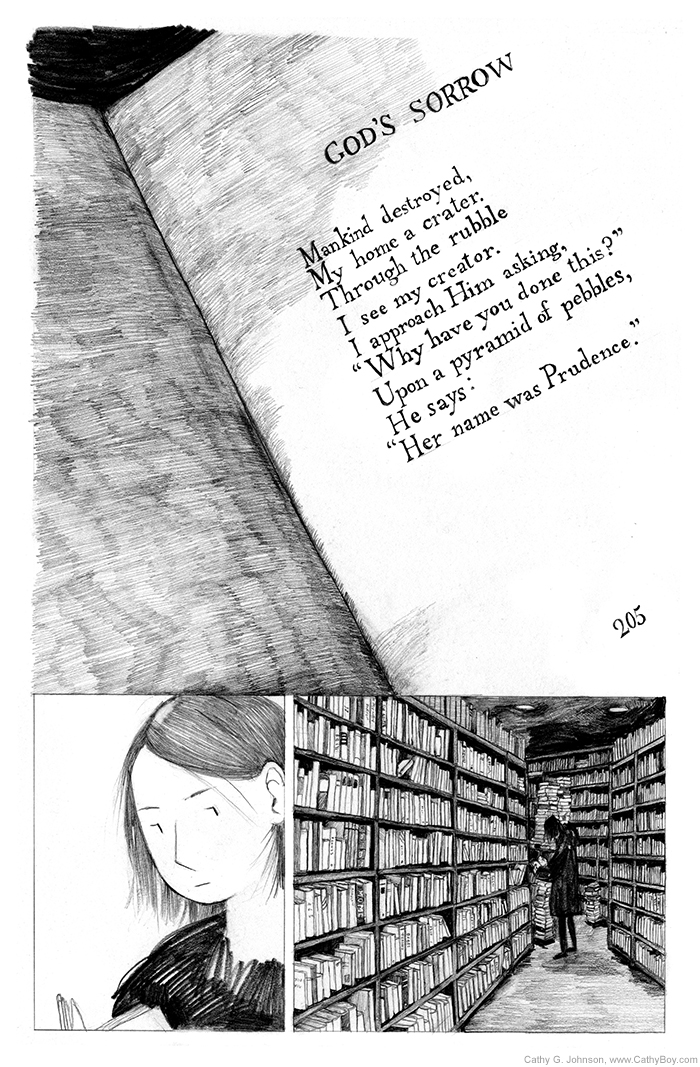
I really appreciated your comic in As You Were #3 and felt it highlighted self-proclaimed intellectuals in our community combining big words and philosophies as leverage to be shit-lords. Unless I completely missed the point. I think most people have had experience with these goons and maybe have had to tackle that behavior in [themselves]. What do you think is an appropriate way of handling those people when they try and dominate a scene?
My comic is definitely about that. I felt like As You Were would give me a platform to a wider audience I usually wouldn’t get to, and I decided to take that opportunity to fucking preach. I even went for the gold and insulted Minor Threat. I wanted people to notice. I have had great feedback, and the comic has created good discussion. No hate mail yet, but I suppose that would be aligning yourself with this clearly terrible man.
I’d say surround yourself with people who you trust and have your back. The scene I spend time with in Providence has no tolerance for men who throw their weight around. Snitch. Listen to each other. Share information on who is shitty. Throw them out. Beat them up. Don’t let them back in your scene. This “no snitches” shit that was popular needs to die. Gossip with each other. Information is empowerment. It’s how you protect yourself and the people you love. If there isn’t a show you feel safe at tonight, go sing karaoke. Go to each other’s houses. Make your own fun. “The scene sucks because you suck” is bullshit. Don’t support a scene that doesn’t support you. Make your own scene.
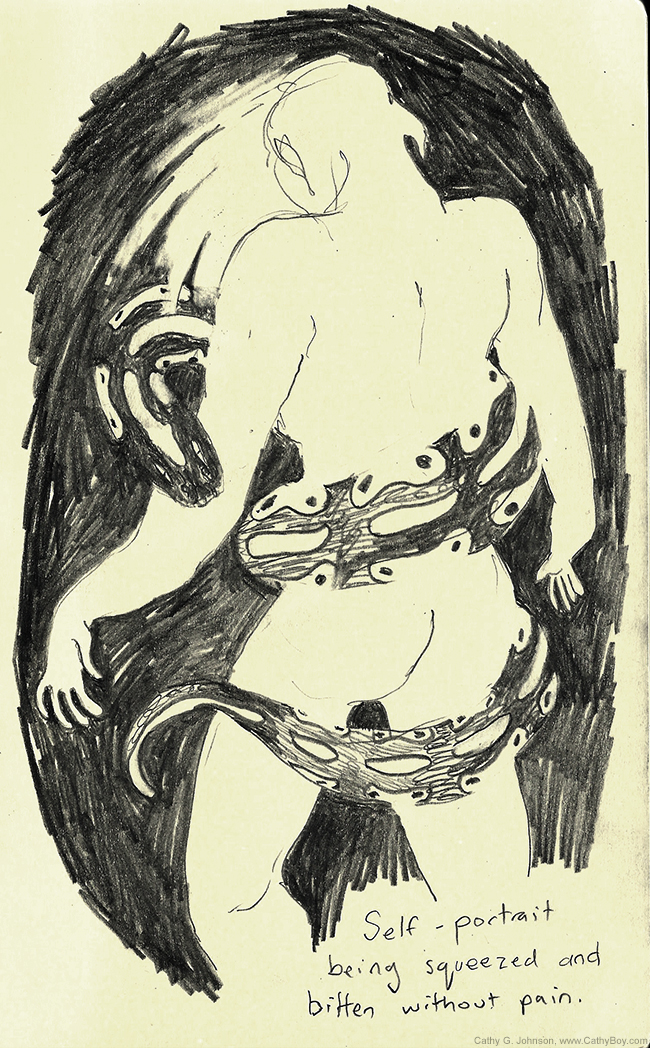
You [organized] a new comics expo in Providence, right? DO TELL!
I [did]! Me and a few of my friends [organized] a convention called the Rhode Island Independent Publishing Expo (RIPExpo) on August 2-3, 2014, at the Providence Public Library. Providence has a lush history and a rich current culture of DIY artists making it happen, and we wanted to show our city off. I was also excited to have a big hand in curating a show for cartoonists and zinesters whose work I believe in. There are a lot of old boys club insular oppressive attitudes that happen in comics. Over the years I’ve been on the scene though, I’ve grown a huge group of friends and peers whose art is solid and politics are on point. This goes into what I was just saying—we are making our own scene, and we aren’t letting people whose work is sexist, racist, homophobic, transphobic, or oppressive in any way, in. And it feels good. Keeping a zero-tolerance approach is how that kind of attitude is going to go extinct.
If money/time allocation/responsibility was of no consequence, what would you do?
I would start a farm animal sanctuary and get a bunch of dogs. A herd of cattle and chickens and ducks and goats. There would be a lake so I could swim a lot. It would somehow be an easy commute to friends and shows in a city. I would travel a lot and spend more time with my partner (we are currently long-distance). I’d also draw a ton of comics and make weird paintings.
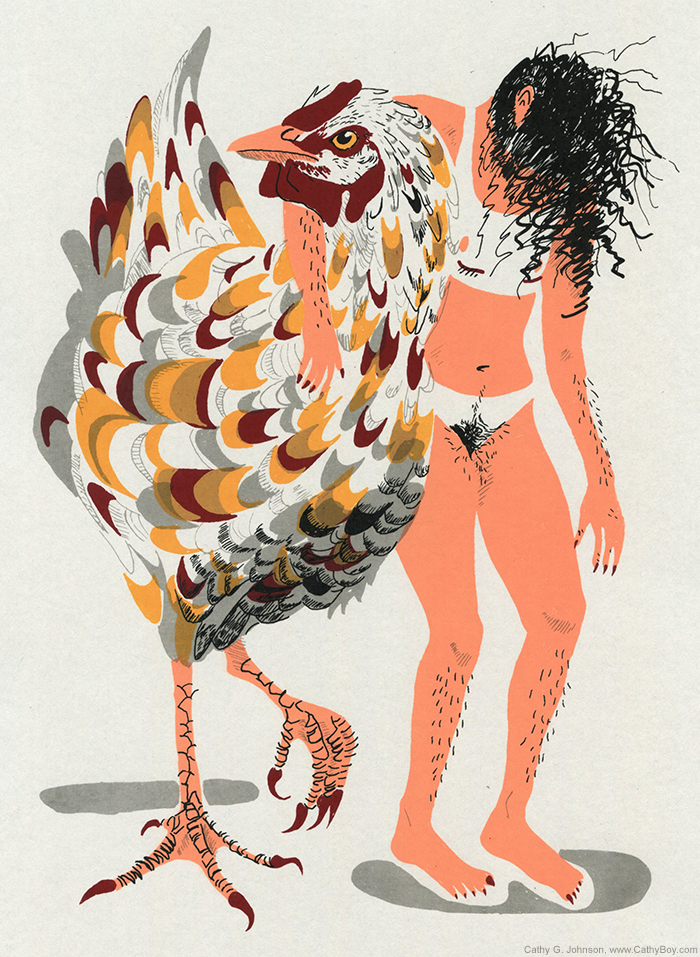
Take a look at Cathy’s online portfolio here, read her contribution to our punk-comics anthology, As You Were #3, and be sure to follow her on Tumblr for all the good stuff.
